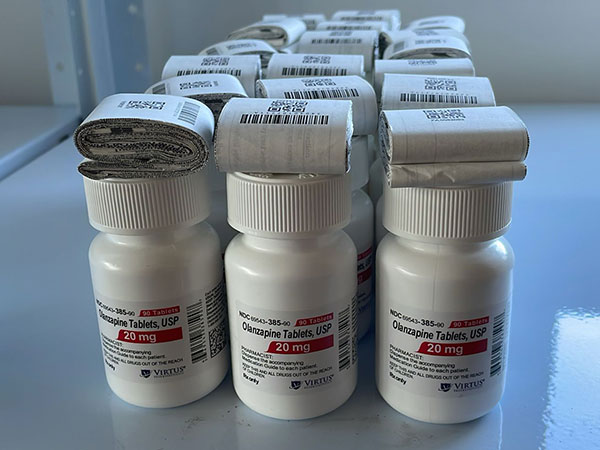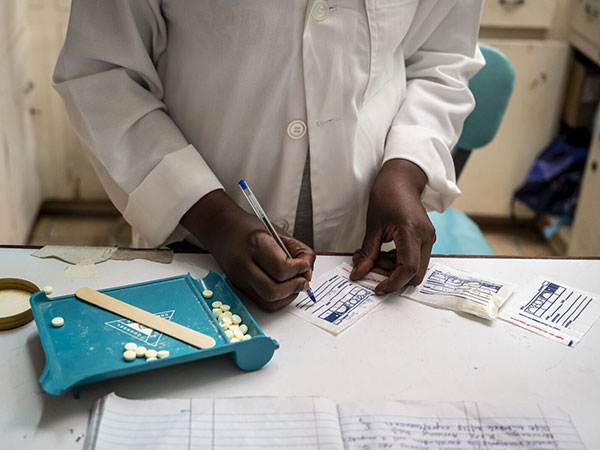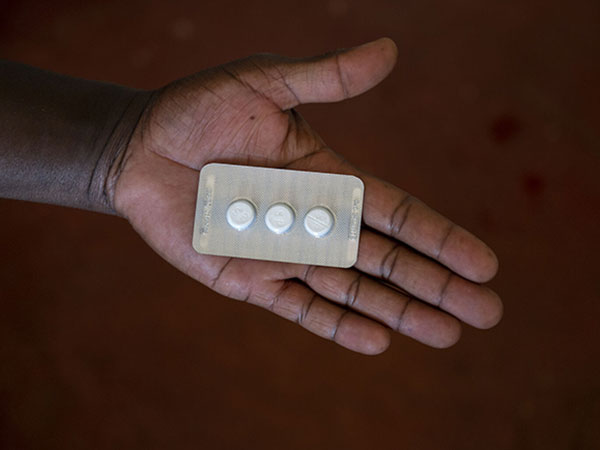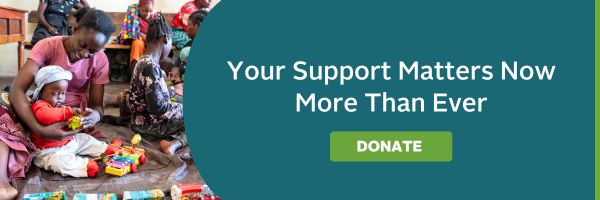Making Mental Health Care a Global Priority

During Mental Health Awareness Month this May, we reflected on the reality that mental health conditions affect nearly one billion people worldwide. For health issues like anxiety, depression, and psychosis, consistent treatment can be life changing. Yet far too many people go untreated, especially in parts of the world that are remote or upended by crises like natural disaster and violent conflict.
In these challenging contexts, patients may overcome the stigma around mental illness to seek treatment, only to discover another barrier. Because of where they live, the medication they need is unaffordable—or not even available.
Renewed Focus on Mental Well-Being
Strong mental health is critical to overall well-being. People who live with mental health conditions may struggle to work and support themselves. They may find it challenging to participate fully in their family and community. Tragically, people who live with severe mental health conditions die 10 to 20 years earlier than average.
Access to timely, high-quality health solutions can be transformational. But globally, progress toward expanding mental health services has not kept pace with demand. Crises like the COVID-19 pandemic, violent conflicts, and climate change have disrupted progress.
When the UN General Assembly meets in September, members will call on the global community to renew its focus on promoting mental health and well-being, as part of strengthened efforts to prevent and control noncommunicable diseases. By 2030, the UN aims to expand mental health services to 150 million more people by encouraging investments that close the equity gap in care.
CMMB’s Access to Medicines Program
A patient receives a diagnosis and a prescription for medication that could improve their mental health and transform their life. But what if the pharmacy shelves are empty?
CMMB’s Access to Medicines program works to change this reality. CMMB partners with pharmaceutical companies and other trusted local partners to deliver vital medications into the hands of healthcare workers in underserved places.
Medications to treat mental health conditions and noncommunicable diseases are among those commonly requested by the health workers we reach. Because these health conditions often require lifelong treatment, medication stockouts can be particularly dangerous for patients.
As the prevalence of noncommunicable diseases and mental health conditions increases, we are focused on meeting the demand for high-quality medication and strengthening local health systems. Between 2021 and 2025, we shipped over $6 million of mental health medications across 65+ donations and 18 countries. Sierra Leone and the West Bank were among the regions reached.
Making Access a Fundamental Right
In Sierra Leone, a country of more than 8 million people in West Africa, there is just one dedicated mental health facility, the Sierra Leone Psychiatric Teaching Hospital (SLPTH). Together, CMMB and Healey International Relief Foundation recently provided SLPTH with $2 million worth of psychotropic medications.
These medications are available free of charge to SLPTH’s patients. Providing essential medications does more than just expand mental healthcare access in Sierra Leone—it also helps break the deep-seated stigma around mental illness, said Josephine, executive director of Healey International.
“Mental health is an integral part of overall health, and access to quality treatment is a fundamental right,” Josephine said. “Ensuring that doctors at SLPTH have reliable access to high-quality medications is essential for providing effective care.”
Delivering Treatment—Right When It’s Needed
In Ramallah, West Bank, a family recently came to see Dr. Mahmoud, founder of the Treatment and Rehabilitation Center for Victims of Torture (TRC). Their daughter, a 16-year-old, had stopped wanting to go to school. Worryingly, she was also showing psychotic symptoms.
Dr. Mahmoud prescribed Olanzapine, a newer-generation drug that treats patients with schizophrenia or bipolar disorder. Thanks to a donation provided by CMMB and distributed through the United Palestinian Appeal, Dr. Mahmoud had this high-quality medication in stock—and could provide it to his patient at no charge.
“Within just a few days of being on the medication, she returned to school and is studying and doing much better,” he said. “Her parents are very happy, too.”
Mental illness is often misunderstood, said Dr. Mahmoud. “As a result, sometimes people around them resent [people with mental health conditions], blame them for what they are going through, or mischaracterize them,” he shared. “Mental illness manifests in different ways, and our patients need support and medical treatments so they can have a better quality of life.”
Building Global Momentum Around Mental Health Care
In Sierra Leone, the West Bank, and other vulnerable regions, pharmacies and health facilities must have reliable access to medicines and medical supplies.
At CMMB, we work every day to fill empty shelves—providing health workers with the medications their patients need, when they need it. But much more work remains. Without local and global efforts, and collaboration between countries, nongovernmental groups, and citizens, the equity gap in care and support for people living with mental health conditions will only grow.
When the UN General Assembly gathers this fall, we see an opportunity to build global momentum. Together, we can prioritize mental wellness—for all people.
Contact us at donationrequests@cmmb.org to learn more about partnering with our Access to Medicines program.


